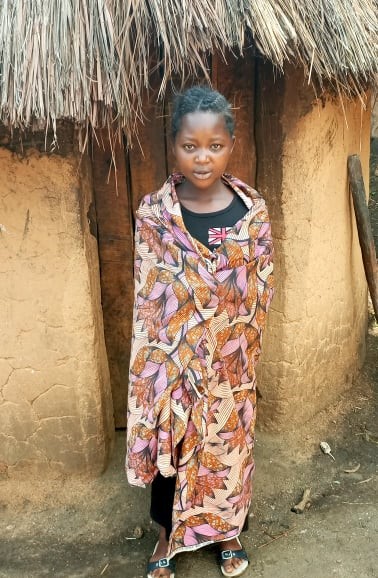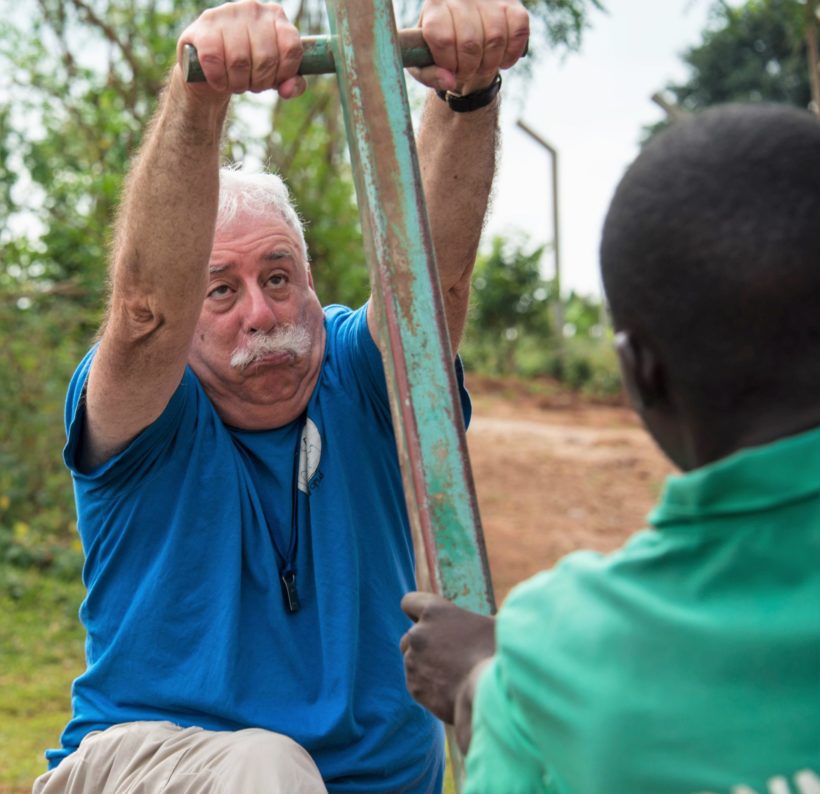On December 6th, David H. Albert, co-founder of Friendly Water for the World (www.friendlywater.org ), working with extremely poor and dispossessed communities in subSaharan Africa and India. is being awarded the 2021 Jamnalal Bajaj International Award, following in the footsteps of Nelson Mandela, Desmond Tutu, Danilo Dolci, and George Willoughby. The Award is a lifetime achievement award given for the promotion of Gandhian values outside of India, specifically:
a. Promotion of peace and harmony among people and friendliness among nations through the application of Gandhian philosophy of truth and non-violence;
- Ending exploitation in any form and seeking solutions to the social, economic, cultural and religious upheaval through Gandhian values and the Constructive Programmes;
- Innovative work in social organizations with a view to promote Gandhian values by awakening moral conscience, self-realization, fostering community self-reliance and harmony of life with the Universe.
https://www.jamnalalbajajawards.org/categories/international
The Awards ceremony, which will be virtual and accessible via the web, will be December 6th, 6:30 PM India Time. The link is JBFAwards.dreamcast.in
Below, you will find his acceptance speech.
Jamnalal Bajaj Award Acceptance – David H. Albert
I am accepting this award on behalf of Dorika Asumani.

Bajaj Dorika
Dorika is 14 years old. She lives in the village of Buyaga in North Kivu Province of the Democratic Republic of Congo. She was one of three children. Her elder brother died of malaria at the age of three. Her mother died four years ago while giving birth to her brother, who also died. Her father left the family to join the military and was killed in the ongoing war, about 250 miles to the north of them.
On November 1st, Dorika and her newborn baby were “ransomed” from a hospital where she was being held hostage. She had given birth to a baby girl, Neema, the result of a rape, and was being held captive until she (or someone) could pay the bill. The hospital has absolutely no funding except that received from their patients. Armed guards prevented her from leaving, and she had no food except that which she could scrounge from other captives. Dorika and the baby slept on a hard cement floor. Her grandmother Zabibu Bibutsa with whom she shared a hut made of mud and grass, had no resources. “Bring the Babies Home”, a program with which I am associated, sprung her from the hospital after several weeks, and she returned to her hut, where there was no mattress other than some old clothes. The villagers welcomed her back, but they can’t help her, as they barely have enough to eat themselves.
Now if I were to end my tale here, I could simply pat myself on the back (if I could still reach it!) for a charitable act reasonably well done. But you would be missing the context that makes this a truly Gandhian story.
The malaria that killed Dorika’s brother is the leading cause of death in much of East and Central Africa. And, as it turns out, there is a flower that grows in much of subSaharan Africa – the pyrethrum chrysanthemum daisy – that kills malaria mosquitos on contact. There are plantations of these flowers all over east Africa – Kenya is the world’s leading exporter, followed by Rwanda, and then Uganda. It used to be grown commercially in the Congo as well. Nearly all of the pyrethrum production is exported to the United States and Europe. I can walk into any hardware store in my neighborhood and purchase it for a reasonable price. Its main use in the U.S. seems to be to kill mosquitos on golf courses. But nowhere have we been able to purchase it in East and Central Africa.
Dorika’s father was a casualty of the ongoing, 26-year war in eastern Congo, in which more than seven million people have died thus far (out of a total population of 75 million). It is by far the largest war in the world, larger than the wars in Afghanistan, Iraq, Syria, Lebanon, Libya, and Somalia combined. It’s not on the front page of our newspapers. Take that in: seven million people dead since 1995, and most of us don’t know about it.
Eastern Congo has been called “the rape capital of the world”. Some of the killings and rapes are carried out by children, ages 10-13. They are kidnapped from their families, hyped up on bush drugs and methamphetamine, equipped with AK-47s which are almost as big as they are, and forced to rape, murder, and set fire to entire villages. Rape is simply a weapon of war. Perhaps five million people are now internally displaced refugees, attempting to escape the violence. It should be noted that not a single gun or bullet used to kill in this war was manufactured in the Congo.
What is the war about? Mostly about control of the mineral coltan. It is found all over eastern Congo. Perhaps eighty percent of the world’s supply currently comes from there. Colton is used in every cellphone and every computer screen. There are slaves – including child slaves – mining it, and the landscape is scarred, and water polluted. Big companies such as Apple, Dell, HP, Samsung, etc. can’t operate without coltan. In another part of Congo, 40,000 child slaves are mining cobalt, not just for computers, but for electric car batteries. Every electric vehicle battery drips the blood of Black African child slaves. We could add in the mining of gold, copper, tin, and diamonds. Congo should be the richest country on earth, but mining has brought it nothing but misery on a spectacular scale.
Dorika’s neighbors are hungry. They are hungry because subsistence agriculture is failing, a result of climate change. Floods are worse in the rainy season; drought is worse in the dry season. The long walks for water are getting longer, and climate changes are resulting in an increased risk of cholera. As a result of malnutrition and parasitic stress, caused by contaminated water, half of all Congolese children are stunted both physically and mentally. The future physical and intellectual capital of the country is stunted along with it. Dorika’s neighbors could, perhaps, have purchased her a mattress, but then they would have had even less to eat.
I won’t even start with a discussion of corruption, or the failure of the medical “system” (a euphemism at best in Congo) to provide even the most basic of medical care to the vast majority of the Congolese people. The future for Dorika’s daughter can hardly be said to be a bright one if she even survives.
Now if you’ve listened carefully to Dorika’s tale of woe in the midst of birth, you will have recognized the same story could have been told about the poor, marginalized, and dispossessed in your own country. The details might differ, and some conditions better and others worse. I invite you to walk alongside “the last man” or “last woman”, and join in the works of charity where you are. You all know your own Dorikas.
But the Gandhian imperative is not about charity. It is about building a social order where means and ends reconcile with each other, where our grappling with truth (satyagraha) generates a power to build new men and new women, able to work together in meeting our material needs while liberating us in the service of each other, and the earth restored.
Here, through Dorika’s tale, is the Gandhian program. Those of you familiar with Gandhi and with the work of Jamnalal Bajaj will easily recognize it. We walk alongside so that:
- Villages will attain the knowledge to build houses that are better than mud and straw huts, without fired bricks that destroy the local environment, and without materials being transported from far away;
- Villages will learn how to take responsibility for their own water, both in capturing it, distributing it, and making sure it is clean enough to drink; and for better sanitation;
- Villages will learn how to adapt to changing climate conditions through informed subsistence agriculture at the local level, and an end to importing food;
- Villages will learn to respect women and value their contributions;
- Villages will recover the knowledge of potential health inventions (like the pyrethrum flower) available to them where they live;
- Health systems will no longer be driven by the love of, or simply the need for, money;
- Conflicts will be waged nonviolently, and mediation of conflicts becomes the norm, from the village level to internationally;
- Human rights will be taught, and respected from the local to the global level;
- Global corporations will be held responsible for their activities, including the provision of reparations and restoration;
- Caring about the environment and the global climate will be the norm;
- A culture of sharing will be encouraged, and villages will be reinvigorated to address local problems as a community.
- We will make friends!
This is my Gandhian program. There is a place in it for every single one of you. My organization Friendly Water for the World embodies many of these imperatives, within our own constraints. People working together are our most important resource. real work is not only in the water-related and other technologies we have to offer, as proud as we are of them, but in social technology – finding ways for all of us to engage each other in reimagining ourselves, our villages, our communities, our states, our nations, and our world. It doesn’t cost anything…except our lives.
To all of you gathered here, to the Board of the Jamnalal Bajaj Foundation, to my friends and colleagues around the world – including those I have yet to meet – I tender my greatest thanks. I thank all of those who have come before and those who will come after, in our collective journey towards truth. And to the Dorikas of the world, who are likely our greatest teachers.
Jai Jagat










